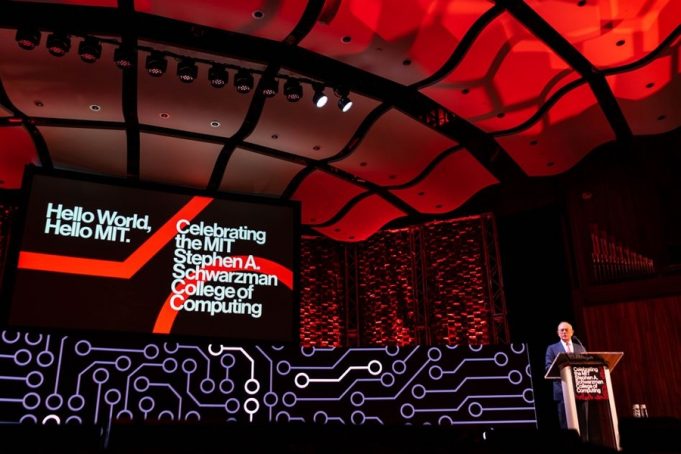Hello World, Hello MIT.

Celebrating the MIT Stephen A. Schwarzman College of Computing
February 26-28, 2019
Shaping the Future
Artificial intelligence and the evolving domains of computer science will be defining forces in the next phase of human history. Our shared future hinges on the responsible and ethical evolution of technologies that are transforming every aspect of modern life.
In this galvanizing moment, the MIT Stephen A. Schwarzman College of Computing aspires to be the “true north” of computing and AI. It will create the next generation of highly trained computational thinkers and doers who can offer the world the cultural, ethical, and historical consciousness to use technology for the common good. The college also aims to lead the race to the horizon of computing and AI knowledge. Its discoveries will leave an indelible imprint on education, the environment, ethics, design, finance, health, music, manufacturing, policy, security, transportation, and diverse areas beyond.
This is how MIT will shape the future.
Creating the College
In fields far beyond engineering and science—from political science and urban studies to anthropology and linguistics—some of today’s most exciting new research is fueled by advanced computational capabilities.
The college will build on and extend this trajectory, reorienting MIT to deliver the power of computing studies and research to fields spanning the entire Institute. In turn, the future direction of computing and AI will be shaped by insights from disciplines across MIT’s five schools.
The Greater Good
As AI reshapes geopolitics, our economy, our daily lives, and the very definition of work, it is creating ethical strains and human consequences. Optimism and fear are both evident and justified. With that in mind, the MIT Schwarzman College of Computing seeks to be a center of advances in computing and a place for teaching and research on relevant policy and ethics, to better ensure that the pioneering technologies of the future are responsibly implemented in support of the greater good.
Our aim is to educate a new generation of technologists in the public interest—leaders who will offer the world technological wizardry grounded in humanity.
Hello World!